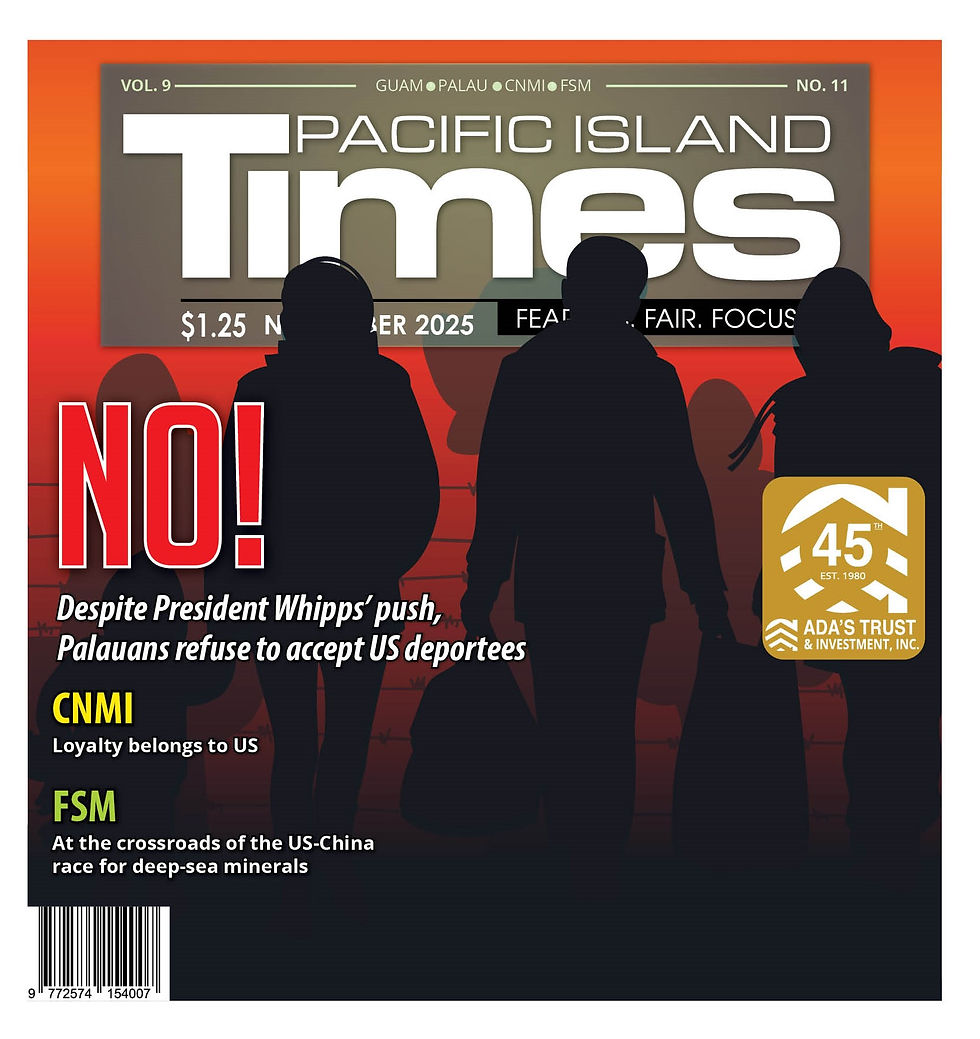'The Kanaks' struggle is about social justice': New report says France ignores New Caledonia's right to self-rule
- Admin

- Nov 9, 2025
- 3 min read

By James C. Pearce
France’s management of New Caledonia continues to undermine the Kanak’s right to self-determination and breach international commitments on decolonization, according to a report by the Pacific Peoples’ Mission to Kanaky New Caledonia.
The Pacific Network on Globalization, the Pacific Conference of Churches and the Protestant Church of Kanaky New Caledonia led the mission, which was
launched following invitations from customary and church leaders.
At the report launch in early November at a media event in Suva, Fiji, the authors identified four main areas of concern and made three recommendations for urgent implementation.
The report noted that France is not a neutral actor in the transition to independence. The French state continues to breach commitments made under the accords through election delays, political interference and the transfer of Kanak leaders to prisons in mainland France, the report noted.
The report further noted a widening socio-economic inequality. Land ownership, employment, and access to public resources remain heavily imbalanced, exacerbated by the 2024 unrest, which destroyed over 800 businesses and left 20,000 people unemployed.
The health system is also in sharp decline. The report claimed that approximately 20 percent of medical professionals left New Caledonia following the 2024 riots, resulting in rural hospitals and clinics being under-resourced and understaffed.
Ultimately, the report highlighted a systemic bias within the justice system. The authors highlighted that Kanak youth now make up more than 80 percent of the prison population.
Anna Naupa, the mission's head, said that France cannot act as both referee and participant in the decolonization process.
The Kanak writer and activist Roselyne Makalu said the report documents the lived experiences of her people.
“Its repeated breaches, political interference and disregard for Kanak rights expose a system built to protect colonial interests, not people,” she said.
The mission has made three recommendations, including free and fair provincial elections under neutral international observation, a new round of negotiations to be held to find a new political agreement post Noumea Accord and for Pacific-led mediation through the Melanesian Spearhead Group and the Pacific Islands Forum.

The report showed further concern about a lack of regional leadership and called for Pacific solidarity with the Kanak people.
To this end, the authors have urged Pacific governments to ensure that Kanaky remains on the United Nations list of Non-Self-Governing Territories and to revitalize regional solidarity mechanisms that support self-determination and justice.
The report is unlikely to receive a warm reception back on mainland France. Paris insists it is acting lawfully and in good faith following the unrest in 2024 and is urging all sides to come to the table to find a suitable compromise. Pro-independence groups have recently declined to take part in further talks.
Paris has blocked fresh local elections for the time being and claims the three independence referendums promised in the Noumea Accords were decisive and carried out legally. Pro-independence groups boycotted the third in 2021.
France is also engulfed in a series of political crises. Several Prime Ministers have resigned in recent months, and President Emmanuel Macron is under increasing pressure to do the same.
The report further condemned France’s decision to postpone provincial elections, describing it as “a blatant new attack on the voice of the Caledonian people.” Mission representative Joey Tau, coordinator of PANG, said the visit offered “an original political mandate to support de-escalation and promote dialogue” but also to question “what led to March 2024—it just didn’t happen overnight.”
Tau emphasized that “the struggle of the Kanak people is not merely political, it’s about social justice, environmental stewardship and identity.”
“What we witnessed in Kanaky is not instability; it is resistance born from decades of broken promises," said David Small, an academic and activist who was a part of the mission.
“The international community must stop treating this as an internal French matter and recognize it for what it is — an unfinished decolonisation process,” he told local media.
The report concluded by saying, “The world is already in the fourth international decade of decolonization […] Self-determination is an inalienable right of colonized peoples. Decolonization is a universal issue, not a French internal matter.”
Subscribe to
our digital
monthly edition






